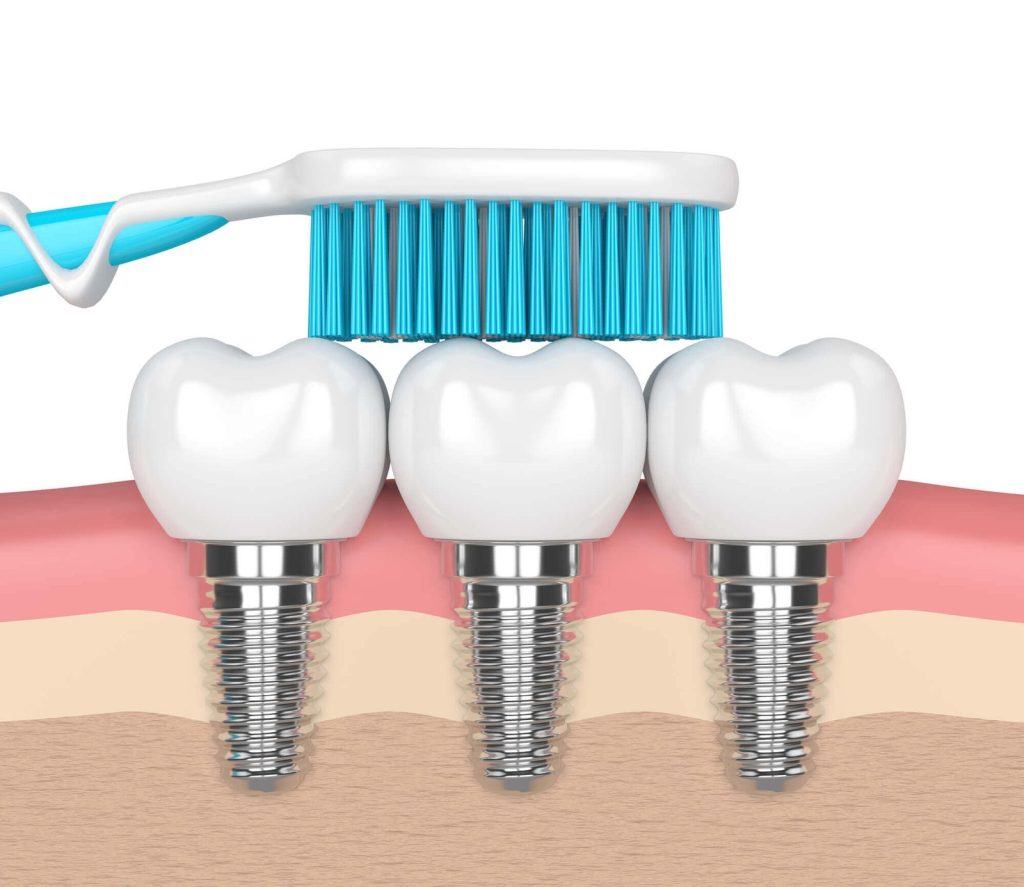Dental implants have revolutionized modern dentistry, offering a permanent solution for replacing missing teeth. They restore not only the appearance of a natural smile but also the functionality of the mouth. However, to maximize the benefits of dental implants, understanding the procedure and the necessary post-care practices is essential.

1. What Are Dental Implants?
Dental implants are artificial tooth roots made of biocompatible materials like titanium. These implants are surgically inserted into the jawbone, providing a strong foundation for fixed or removable replacement teeth.

- Components of a Dental Implant:
- The implant (screw-like post).
- The abutment (connects the implant to the crown).
- The crown (the visible, tooth-like structure).
- Advantages of Dental Implants:
- Long-term durability.
- Natural look and feel.
- Prevention of bone loss.
- Improved oral health and functionality.
2. The Procedure: Step-by-Step Overview
The dental implant process involves several stages to ensure the best results:
- Consultation and Planning: A thorough examination, including X-rays, to evaluate bone structure and oral health.
- Implant Placement: Surgical insertion of the implant into the jawbone.
- Healing Period (Osseointegration): The bone grows around the implant, securing it in place. This process can take several months.
- Abutment Placement: A connector piece is attached to the implant.
- Crown Placement: A custom-made crown is fixed onto the abutment to complete the procedure.
3. Immediate Post-Surgery Care
After the implant surgery, proper care is crucial for healing and preventing complications:

- Manage Swelling and Pain: Use prescribed medications and cold compresses.
- Avoid Certain Foods: Stick to soft foods and avoid anything hard, hot, or spicy.
- Maintain Oral Hygiene: Gently rinse with a non-alcoholic mouthwash or warm saltwater.
4. Long-Term Maintenance for Dental Implants
Proper maintenance ensures the longevity and health of dental implants:
- Daily Oral Hygiene:
- Brush twice a day using a soft-bristle toothbrush and non-abrasive toothpaste.
- Use interdental brushes or floss designed for implants to clean hard-to-reach areas.
- Consider a water flosser for thorough cleaning.
- Regular Dental Checkups:
- Schedule biannual visits to the dentist to monitor implant health.
- Professional cleanings help remove plaque and tartar buildup.
- Healthy Lifestyle Choices:
- Avoid smoking, as it hinders healing and increases the risk of implant failure.
- Limit sugary and acidic foods to prevent bacterial growth.
5. Potential Complications and How to Avoid Them
While dental implants have a high success rate, complications can occur if proper care isn’t taken:
- Peri-implantitis: An infection around the implant caused by poor oral hygiene.
- Implant Loosening: Often due to insufficient bone support or excessive pressure.
- Nerve Damage: Rare but possible during surgery.
- Preventive Measures:
- Follow all dentist instructions.
- Prioritize oral hygiene.
- Address any discomfort or unusual symptoms promptly.
6. Tips for Everyday Care
- Use the Right Tools: Electric toothbrushes and antimicrobial rinses can enhance cleaning.
- Protect Your Teeth: Wear a mouthguard during sports or if you grind your teeth at night.
- Stay Hydrated: Drinking water helps flush bacteria from your mouth.
Conclusion
Dental implants are a valuable investment in your oral health and quality of life. With the right care and maintenance, they can last a lifetime, offering you the confidence and functionality of natural teeth. By following the steps outlined in this guide, you can ensure the success and longevity of your dental implants.
